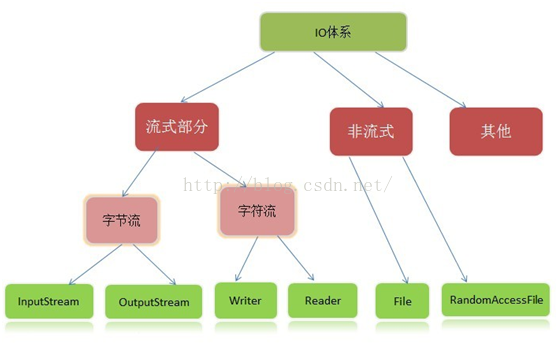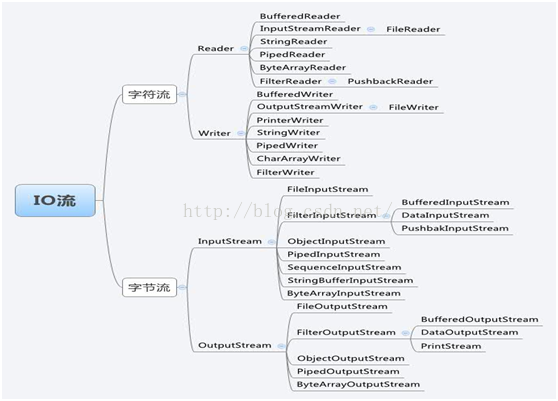Java中的IO基本用法
先贴一下我在作业中用到的三种文件输入辅助类、三种文件输出辅助类
public class BuffIn implements InHelp{ private BufferedReader bufferedReader; public BuffIn(String path) { try { bufferedReader = new BufferedReader( new InputStreamReader(new FileInputStream(path), "UTF-8")); }catch (IOException e){ System.err.println("请提供正确路径"); PathException e2 = new PathException(path,"路径地址错误"); Logs.logger.error(e2.getMessage()); } } @Override public String read() throws IOException { TimeCounter.start(); String s = bufferedReader.readLine(); TimeCounter.pause(); return s; } @Override public void shut() throws IOException { bufferedReader.close(); } } public class BuffreaderIn implements InHelp{ private BufferedReader bufferedReader; public BuffreaderIn(String path) { try { bufferedReader = new BufferedReader(new FileReader(path)); }catch (IOException e){ System.err.println("请提供正确路径"); PathException e2 = new PathException(path,"路径地址错误"); Logs.logger.error(e2.getMessage()); } } @Override public String read() throws IOException { TimeCounter.start(); String s = bufferedReader.readLine(); TimeCounter.pause(); return s; } @Override public void shut() throws IOException { bufferedReader.close(); } } public class ScannerIn implements InHelp{ private Scanner scanner; private java.io.File file; public ScannerIn(String path) { try { file = new java.io.File(path); scanner = new Scanner(file); }catch (IOException e){ System.err.println("请提供正确路径"); exception.PathException e2 = new exception.PathException(path,"路径地址错误"); logs.Logs.logger.error(e2.getMessage()); } } @Override public String read() throws IOException { TimeCounter.start(); if(!scanner.hasNextLine()) return null; String s = scanner.nextLine(); TimeCounter.pause(); return s; } @Override public void shut() throws IOException { scanner.close(); } }
public class BuffOut implements OutHelp{ private BufferedWriter bufferedWriter; private FileOutputStream fileOutputStream; public BuffOut(String path) { try { fileOutputStream = new FileOutputStream(path); bufferedWriter = new BufferedWriter( new OutputStreamWriter(fileOutputStream, "UTF-8")); }catch (IOException e){ System.err.println("请提供正确路径"); PathException e2 = new PathException(path,"路径地址错误"); Logs.logger.error(e2.getMessage()); } } @Override public void write(String s) throws IOException { TimeCounter.start(); bufferedWriter.write(s); TimeCounter.pause(); } @Override public void shut() throws IOException { bufferedWriter.close(); fileOutputStream.close(); } } public class StreamOut implements OutHelp{ private OutputStreamWriter outputStreamWriter; private FileOutputStream fileOutputStream; public StreamOut(String path) { try { fileOutputStream = new FileOutputStream(path); outputStreamWriter = new OutputStreamWriter(fileOutputStream, "UTF-8"); }catch (IOException e){ System.err.println("请提供正确路径"); PathException e2 = new PathException(path,"路径地址错误"); Logs.logger.error(e2.getMessage()); } } @Override public void write(String s) throws IOException { TimeCounter.start(); outputStreamWriter.write(s); TimeCounter.pause(); } @Override public void shut() throws IOException { outputStreamWriter.close(); fileOutputStream.close(); } } public class WriterOut implements OutHelp { private FileWriter fileWriter; public WriterOut(String path) { try { fileWriter = new FileWriter(path); }catch (IOException e){ System.err.println("请提供正确路径"); PathException e2 = new PathException(path,"路径地址错误"); Logs.logger.error(e2.getMessage()); } } @Override public void write(String s) throws IOException { TimeCounter.start(); fileWriter.write(s); TimeCounter.pause(); } @Override public void shut() throws IOException { fileWriter.close(); } }
主要的类如下:
1. File(文件特征与管理):用于文件或者目录的描述信息,例如生成新目录,修改文件名,删除文件,判断文件所在路径等。
2. InputStream(二进制格式操作):抽象类,基于字节的输入操作,是所有输入流的父类。定义了所有输入流都具有的共同特征。
3. OutputStream(二进制格式操作):抽象类。基于字节的输出操作。是所有输出流的父类。定义了所有输出流都具有的共同特征。
4.Reader(文件格式操作):抽象类,基于字符的输入操作。
5. Writer(文件格式操作):抽象类,基于字符的输出操作。
6. RandomAccessFile(随机文件操作):一个独立的类,直接继承至Object.它的功能丰富,可以从文件的任意位置进行存取(输入输出)操作。
针对一些频繁的设备交互,Java语言系统预定了3个可以直接使用的流对象,分别是:
· System.in(标准输入),通常代表键盘输入。
· System.out(标准输出):通常写往显示器。
· System.err(标准错误输出):通常写往显示器。
IOException异常类的子类
1.public class EOFException : 非正常到达文件尾或输入流尾时,抛出这种类型的异常。
2.public class FileNotFoundException: 当文件找不到时,抛出的异常。
3.public class InterruptedIOException: 当I/O操作被中断时,抛出这种类型的异常。





 浙公网安备 33010602011771号
浙公网安备 33010602011771号